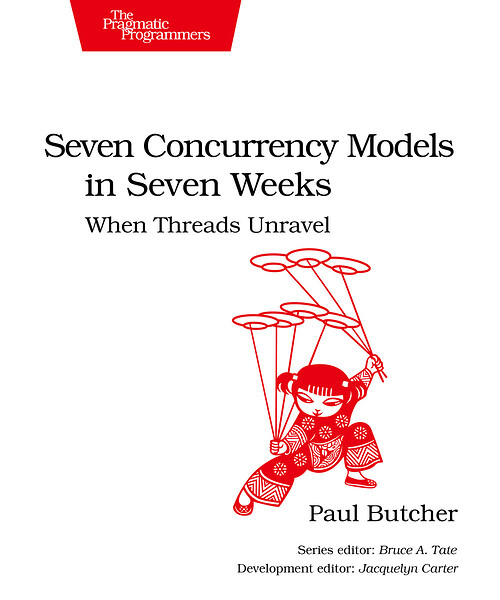Paul Butcher
Series editor: Bruce Tate @redrapids
Developmental editor: Jacquelyn Carter @jkcarter
This book will show you how to exploit different parallel architectures to improve your code’s performance, scalability, and resilience. You’ll learn about seven concurrency models: threads and locks, functional programming, separating identity and state, actors, sequential processes, data parallelism, and the lambda architecture.
Learn about the perils of traditional threads and locks programming and how to overcome them through careful design and by working with the standard library. See how actors enable software running on geographically distributed computers to collaborate, handle failure, and create systems that stay up 24/7/365. Understand why shared mutable state is the enemy of robust concurrent code, and see how functional programming together with technologies such as Software Transactional Memory (STM) and automatic parallelism help you tame it.
You’ll learn about the untapped potential within every GPU and how GPGPU software can unleash it. You’ll see how to use MapReduce to harness massive clusters to solve previously intractable problems, and how, in concert with Stream Processing, big data can be tamed.
With an understanding of the strengths and weaknesses of each of the different models and hardware architectures, you’ll be empowered to tackle any problem with confidence.
“For decades, professional programmers have dealt with concurrency and parallelism using threads and locks. But this model is one of many, as Seven Concurrency Models in Seven Weeks vividly demonstrates. If you want to get ahead in a world where mainstream languages are scrambling to support actors, CSP, data parallelism, functional programming, and Clojure’s unified succession model, read this book.”
–Stuart Halloway, Cofounder, Cognitect
Don’t forget you can get 35% off with your Devtalk discount! Just use the coupon code “devtalk.com" at checkout ![]()

